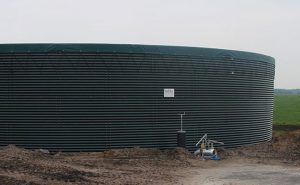The future of farming and agricultural services

With recent farming news declaring that the fertility of Britain’s soil will only remain for around 40 more years, is a distressing reality for many of those working within agricultural services. Intensive farming including the use of heavy farm machinery and chemical overuse to improve the short-term productivity of crops has resulted in a reduced life of the nutrients and health of the ground.
The damage to soil fertility
Historically, some farming practices and agricultural services may have caused damage to the earth that simply cannot be reversed. Heavy machinery that has churned the soil so intensively had resulted in a greatly reduced fertility in the land, due to the constant demand for increased crop growth.
Although short-term options to boost crop productivity can be beneficial to yields and profits, they result in a long-term chemical scar on the soil.Despite the comments made by Defra Security, Michael Gove, in October, many UK farmers are actively monitoring and encouraging the restoration of soil on their farms to reduce land degradation. So, how can farmers and agricultural service providers aim to reduce the risk of complete soil infertility for the next generation?
Test your soil frequently
It is important for farmers to test their soil frequently to ensure they are monitoring the health and nutrient levels. This can also be carried out by professional agricultural service providers, who can also map the land and determine the best crops to be grown in those areas. Through the use of GPS mapping, we can further assess your land and build a detailed view of the nutrients that are currently available in your field and identify areas for improvement.
Increase plant and animal matter in fields
Organic matter is essential in promoting healthy soil, increasing nutrients and promoting the growth of crops. Recent declines in UK farms have seen less and less animal and plant matter being reinjected back into field soil. The introduction of plant and animal matter into soil increases the number of organisms present, which support in several key factors of soil sustainability, including;
- Maintenance of soil structure
- Regulation of hydrological processes
- Detoxification of soil
- Reduction and suppression of parasites, pests, and disease
- Nutrient cycling
Increased understanding of soil biology
Further education is required to ensure that all farmers and agricultural service providers are aware of the importance of soil biology. Soil organisms are vital to the production and churning of soil, that in turn releases nutrients in the ground. Organisms present in the soil, including the likes of bacteria, fungi, algae, and fauna including earthworms and mites, promote healthy movement within the soil and help to break down and decompose organic matter.
Nutrient cycling is the process of nutrient exchange between living and non-living ecosystem elements. The carbon cycle includes two processes, immobilisation, and mineralisation. Immobilisation is the absorption of nutrients from soil, which is then converted into plant tissue. Mineralisation is the opposite, when plants die they release nutrients from their tissues back into the soil which fuels the carbon cycle.
Ensure continuous plant coverage
To protect vulnerable land and ensure that soil maintains its integrity, farmers should ensure that bare soil is covered with continuous plant growth. This can be implemented using green manures, under-sown crops and cover crops that bring an added fertility to the soil. This can prevent soil erosion and protect vulnerable land from the effects of the elements.
Farmers can also implement the planting of trees, particularly on vulnerable and steep-sided fields, which can protect against soil erosion, with roots supporting the soil up to three years after the tree dies. Not only do tree roots support soil, but also offer a natural fertilisation, adding further nutrients and improving the aeration and drainage of the ground.
Reduce soil compaction
As previously mentioned agricultural service contractors and farmers can reduce soil compaction by reducing the amount of heavy machinery used on the ground. Farmers are encouraged to use lighter machinery where possible, ensure their tyre pressures are correct, avoid working on grazing wetland and reduce the number of passes on the soil.





